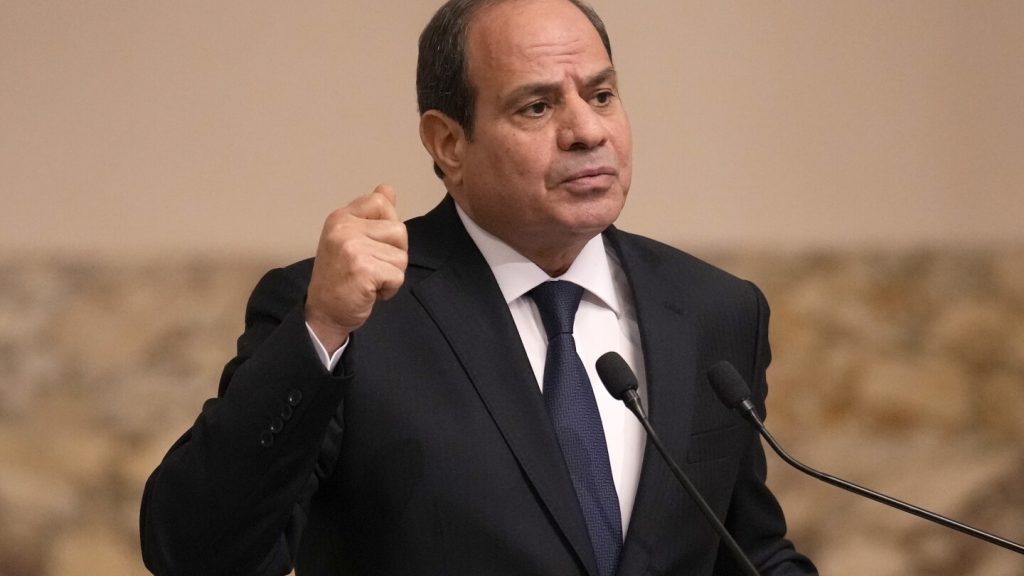President Abdel-Fattah el-Sissi of Egypt has been sworn in for a third six-year term after winning a re-election in December with 89.6% of the vote. The inauguration took place before parliament in the new administrative capital outside Cairo. The election saw a turnout of 66.8% of registered voters, with el-Sissi facing three little-known challengers. The vote occurred amidst tensions with Israel and Hamas in Gaza, raising concerns of wider regional conflict.
El-Sissi first came to power in 2014 and was re-elected in 2018. Constitutional amendments passed in a referendum extended his second term by two years and allowed him to run for a third term. His victory in the most recent election was widely expected, as his opponents were considered marginal figures in the political landscape. Despite criticism of the limited political competition, el-Sissi’s supporters highlight his role in stabilizing the country after the Arab Spring and his efforts to combat terrorism.
The political climate in Egypt under el-Sissi’s rule has been characterized by a crackdown on dissent, with human rights groups raising concerns about the shrinking space for freedom of expression and activism. The government has been accused of using tactics such as arbitrary arrests and censorship to suppress opposition voices. However, el-Sissi’s supporters argue that these measures are necessary for maintaining security and stability in a region plagued by violence and terrorism.
The inauguration of el-Sissi for a third term comes at a time of uncertainty in the Middle East, with ongoing conflicts in Syria, Yemen, and Libya, as well as tensions between Iran and the Gulf states. Egypt’s role in mediating regional disputes and maintaining stability in the region is seen as crucial, especially given its strategic location and historical significance. El-Sissi has positioned himself as a key player in regional politics, forging alliances with countries such as Saudi Arabia and the United Arab Emirates.
As he embarks on his third term, el-Sissi faces challenges on multiple fronts, including economic issues such as high unemployment and inflation, as well as security threats posed by militant groups. The president has vowed to continue his efforts to modernize the economy and attract foreign investment, but critics argue that his policies have disproportionately benefited the elite while neglecting the needs of the broader population. The coming years will test el-Sissi’s ability to address these challenges and fulfill the expectations of the Egyptian people.
Despite criticism from some quarters, el-Sissi remains a popular figure in Egypt, with many Egyptians viewing him as a strong leader who has brought stability to the country. His supporters point to his efforts to improve infrastructure, combat terrorism, and restore Egypt’s standing in the international community. As he begins his third term in office, el-Sissi will need to balance the demands of his supporters with calls for greater political freedom and economic reform. The future of Egypt under his leadership remains uncertain, but for now, el-Sissi’s grip on power appears unshakeable.


